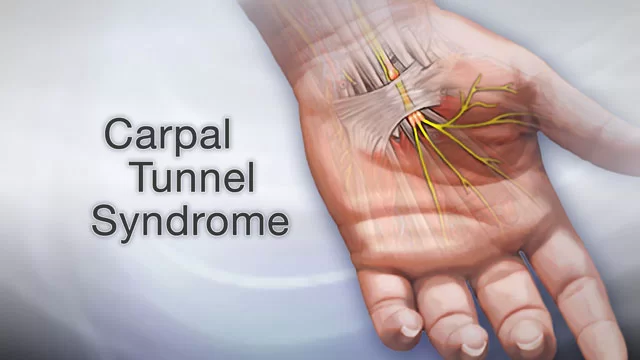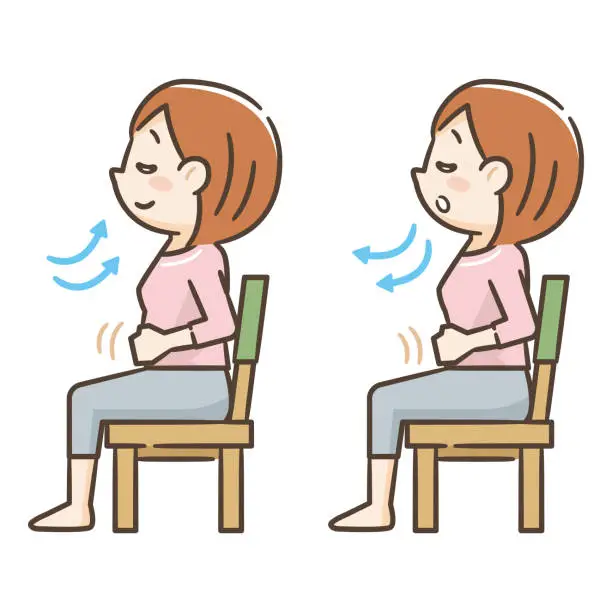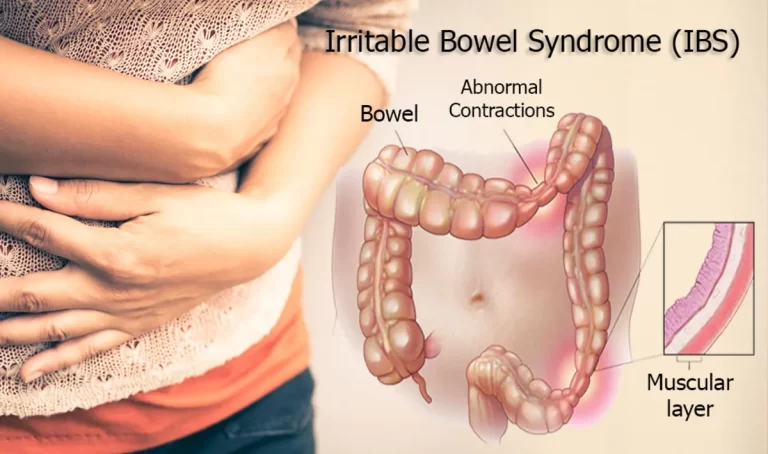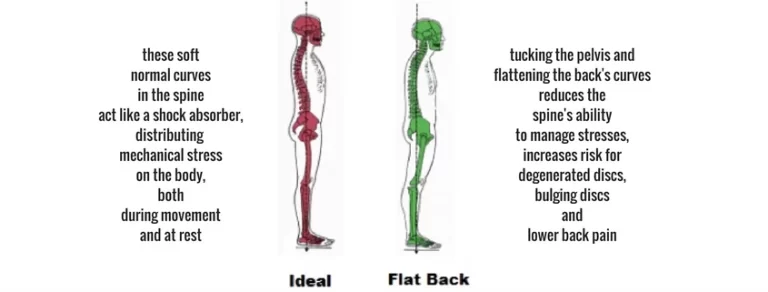How Long Does a Pinched Nerve Last?
A pinched nerve, medically known as nerve compression or radiculopathy, occurs when there is increased pressure on a nerve, leading to pain, tingling, or numbness. The duration of a pinched nerve varies widely depending on the underlying cause, severity, and how effectively it is managed.
In many cases, symptoms may resolve on their own within a few days to weeks with conservative treatments such as rest, physical therapy, and anti-inflammatory medications. However, chronic or severe cases may require more intensive interventions, including surgery.
What is a Pinched Nerve?
A compressed nerve is a pinched nerve. In various parts of your body, surrounding tissues that apply pressure to nerve roots might result in pain, numbness, and tingling. A herniated spinal cord that presses on the spinal nerve that travels down the leg is frequently the cause.
Most pinched nerves originate in the neck (cervical radiculopathy), lower back (lumbar radiculopathy), or upper middle back (thoracic radiculopathy). You might also experience hand, elbow, and wrist pinched nerves (a condition called wrist carpal tunnel syndrome).
Introduction
When a doctor diagnoses you with a pinched nerve in your neck or back, it usually indicates that the arm or leg is experiencing pain, tingling, numbness, and weakness due to an irritated or compressed nerve root. A herniated disc, bone spur, or other spinal degeneration or injury could be the cause of these symptoms.
A pinched nerve can endure for a few days, many weeks, or even longer, depending on where it is and how severe it is. A pinched nerve can typically persist anywhere from a few days to much longer (in which case you should consult a physician). Given the severe pain and numbness that a pinched nerve can cause, it makes sense that you would want to take all the necessary measures to relieve it as soon as possible. Overstressing the nerve with pressure from the surrounding tissues results in a pinched nerve. Tendons, cartilage, bone, or muscles may compress a nerve.
This may cause the damaged nerve to lose its ability to function, which may cause the following symptoms:
- Strong pain that occasionally has a burning feeling to it
- Tingling numbness
- Weakening of the muscles
You need to treat a pinched nerve in order to expedite the healing process. In cases that are more serious, surgeons might be required.
Cause for a Pinched Nerve
A pinched nerve might cause pain or numbness when you get up in the morning, or it can cause discomfort over time. It may occur for a variety of causes. For example, it could be brought on by arthritis, a herniated disc, or obesity, all of which could compress a nerve.
Nerve pain can also be caused by sports injuries and even seemingly insignificant variables like posture or sitting position. Carpal tunnel syndrome-related nerve pain is well-known to many of us. For example, the repetitive motions of typing on a computer might compress nerves.
The sensation of compression or force conveys a signal to the brain, resulting in symptoms such as burning, stinging, numbness, tingling, muscle weakness, or a pins-and-needles sensation that is more intense when you’re lying down or first waking up. Though it can happen anywhere in the body, pinched nerves are most commonly seen in the neck, back, elbows, and wrists by pain experts.
Symptoms of a Pinched Nerve:
Each and every nerve in the body senses pain in particular parts of the body or internal organs. In order for some muscles and organs to function correctly, nerves must also stimulate them. Pinched nerve symptoms interfere with the normal function of the nerve, which affects the skin and musculoskeletal system’s supply of nerves.
The following are common symptoms of a pinched nerve, which can interact;
- A feeling of burning
- Pins and needles or electric shock-like tingling sensations
- Usually radiating pain from the pinched nerve
- Pain in a seemingly separate location, such as your elbow or arm from a pinched nerve in your neck
- An area of skin that is numb
- The sensation of your foot or hand going to sleep
- Decreased sensitivity to touch, pain, or temperature in a particular area of the skin
- Loss of strength in the affected muscle
A pinched nerve typically manifests its symptoms gradually and may come and go. The intensity of symptoms may vary based on your body alignment.
How does the pain of a pinched nerve feel?
While there are various symptoms you can experience while it’s happening, a pinched nerve in the neck is usually associated with some pain. Additionally, you might experience numbness or diminished feeling in your hand, shoulder, or arm. Another common symptom of a pinched nerve in the neck is tingling or a pins-and-needles sensation in the fingers.
If these feelings and signs are not too severe, you can try pinched nerve exercises. But, it’s best to speak with a doctor if they’re severe and interfere with your everyday activities so they can guide you through the right diagnosis and course of treatment. Should the symptoms persist for more than a few days, you should also think about visiting a physician.
The length of time you may experience a pinched nerve is dependent upon several factors, including the cause of the compression, the degree of compression, and the reaction of your immune system.
What is the duration of a Pinched Nerve?
Depending on what is pressing on the nerve and whether you look for immediate medical attention, the length of a pinched nerve might differ. The position of the pinched nerve may also affect the degree of recovery. An acute cause of a brief pinched nerve, like an injury or bad posture, usually lasts for several days.
Cases involving long-term ailments like arthritis can go on longer. You should see your physician in this situation. for a course of therapy. Depending on how you manage it, pinched nerves can persist anywhere from a few days to around a month.
Usually, it is a transient condition that you can manage on your own, but persistent pain should not be disregarded as it may indicate a more serious issue. Recall that the nerve is alerting the brain to a problem.
See a pain management specialist for a diagnosis and therapy if, despite rest and at-home measures, your condition does not improve. If this has happened once, there’s a good probability it will happen again. However, by lowering pressure and inflammation with easy exercise movements, pinched nerves and their recurrence can be prevented.
Average Time for a Pinched Nerve:
Most pinched nerve sufferers will get relief from their symptoms in a matter of days to weeks. Still, the length may differ depending on;
- Cause: The nerve compression may become worse due to repetitive motions or specific body postures. For example, a pinched nerve from one heavy object lift may heal more quickly than carpal tunnel syndrome caused by repetitive wrist motions.
- Severity: If there is any damage to the nerve itself, mild compression may heal more quickly than severe compression.
- Basic Facts: Certain medical conditions, such as diabetes or rheumatoid arthritis, can worsen or prolong nerve compression.
- Age: Our body’s healing processes may become less efficient as we age. Older adults may therefore need more time to recover.
What to expect from a pinched nerve in different bodily areas is as follows;
Neck
Your arms and shoulders may experience tingling and pain due to a pinched nerve in your neck. Possible causes of this kind of pinched nerve include:
- Accidents repeating motions
- Sleeping posture
- If a persistent illness like arthritis is the origin of the pinched nerve, the pain will usually go away in a few days.
Lower back
- Herniated discs that compress the nerve roots in this region are frequently associated with lower back pinched nerves. Injuries or arthritis may also be the cause.
- Sharp discomfort in your lower back, buttocks, and back of your leg are possible sensations. Sciatica could be a sign of a lower back pinched nerve. There are cases where lower back discomfort is severe and passes quickly.
Leg
- Pinched nerves in your legs may result from injuries or herniated back discs. Peripheral neuropathy can result from pinched nerves if treatment is not received. This could take weeks or years to develop.
Hip
- If your hip pinched nerve is caused by an accident, it cannot go away for a few days. See your doctor if the discomfort persists for more than a few days.
- Among the potential reasons for persistent hip discomfort are: bone spurs, being overweight, arthritis
Shoulder
- A pinched nerve typically causes shoulder pain that starts in the upper spine due to: an injury, tendinitis, and arthritis
- The abrupt severity of your aches is one indicator that your pain is coming from a pinched nerve rather than a strained muscle. Additionally, the pain usually only affects one shoulder.
- Shoulder tendonitis or arthritis goes on uncontrolled, it can cause chronic discomfort that comes and goes for weeks, months, or even years.
Wrist
- Regular typing is frequently associated with pinched wrist nerves.
- Carpal tunnel syndrome may result from pinched nerves in the wrist. When extending through your fingers and hand, this is the time.
- More than two months of pain could be a sign of some underlying condition, including arthritis.
Healing and alleviating pins:
With sufficient rest, pinched nerves usually go away on their own. Refrain from overusing the afflicted area as it heals. If some motions hurt, try to stay away from those triggers. Recall that there is nerve discomfort. Pain will go away if the inflammation is reduced.
Sleep and rest are two of the best forms of treatment. sleep is the chance for bodily systems to mend and heal, as well as our body’s reset mechanism. The idea is that the more rest, the faster the body heals. The issue with pinched nerves is that they frequently hurt the most during the night and are hard to be comfortable with. After a demanding day, we unwind during sleep.
You also can’t ignore the ache from pinched nerves. You’ve undoubtedly “pushed through” pain all day. However, there are certain restorative choices.
Strategy for managing a pinched nerve:
Nonsurgical treatments are usually effective in relieving pinched nerve-related radiculopathy and discomfort.
preliminary care could consist of:
- To prevent agitating the nerve and triggering a symptom flare-up, take a little break or engage in different activities.
- Nonsteroidal anti-inflammatory drugs include aspirin, ibuprofen, and naproxen (NSAIDs).
- Physical therapy to enhance posture, strength, and flexibility in the neck and back may help reduce inflammation of the nerves.
- Anti-inflammatory drugs are injected into the irritated nerve using epidural steroid injections.
- Cervical traction is one of the chiropractic treatments used to treat cervical radiculopathy.
Surgery may be recommended in some cases where symptoms have not improved after 6 or 12 weeks of nonsurgical treatment, or if you have extreme weakness or uncontrollable pain.
How may a pinched nerve be treated at home?
There are several Home cures for pinched nerve discomfort. Try getting moving. Because of the endorphin reaction, even easy yoga poses or simple stretches can help relieve pain in the affected area. You might stroll gently. Additionally, to keep your body fluid while at work, set a timer to wake up and exercise every hour.
The first line of treatment for a pinched nerve is to use natural therapies to relieve:
- Discomfort
- Numbness
- A general feeling of unease
The faster you heal from a pinched nerve, the earlier you receive treatment.
Lifestyle changes:
- Over time, adding low-impact physical activities like swimming, cycling, or walking into a routine may aid in symptom reduction and physical fitness maintenance. Reducing inflammation may be aided by losing excess weight and increased mobility from regular exercise.
Ice and heat packs:
- In many situations, switching between heat and cold packs can aid in the reduction of edema and inflammation. The use of both heat and cold stimulates new blood circulation to the region, potentially alleviating pain.
- To assist reduce inflammation, place an ice pack over the affected area three times a day for approximately fifteen minutes at a time. Heat pads can be used three times a day for an extended length of time up to an hour.
Massage or physical therapy:
- Getting a massage can also help lower stress and physical pain. A complete body massage can assist the muscles relax and ease tension by gently pressing the problematic area.
- The additional pressure from deep tissue massages could exacerbate the symptoms, therefore it might not be a smart decision. Symptom relief can be achieved with physical therapy, which combines massage, exercise, and mild stretches.
Stretching and yoga:
- Yoga and light stretching might help release pressure and tension in the affected area. It’s crucial to avoid stretching too much because doing so could exacerbate symptoms. While some stretches could be slightly uncomfortable, one should cease immediately to prevent additional damage to the nerve if one suffers moderate to severe pain.
- Stretching can assist in maintaining the body’s flexibility and lessen pressure and inflammation around the nerves, whether done before or after low-impact exercises
Pain relieving medications:
- Painkillers available over the counter might also be helpful.
- Having a compressed nerve. In cases with mild pinched nerves, nonsteroidal anti-inflammatory medications (NSAIDs), such as ibuprofen, can help reduce inflammation and relieve discomfort.
- Before taking NSAIDs, it’s crucial to speak with a doctor about dosage guidelines and any possible interactions, just like with any other medication.
Change of posture:
- A pinched nerve may result from poor posture or may be made worse by it. incorrect sitting or standing posture. Extended usage puts the body under excessive strain, raising the possibility of pinched nerve injury.
- To reduce pressure and promote nerve healing, use cushions, adjustable chairs, and neck rests when seated. Seeking the help of a pain management specialist is the best course of action if these methods fail to reduce the pain or if it even gets worse.
Extra sleep and rest:
- Rest is necessary for the repair of a nerve. Allowing the body extra time to mend itself as it sleeps could speed up the reduction of symptoms.
- Pinched nerves can often heal on their own if the affected area is rested and enough rest is achieved.
When undergoing treatment for a pinched nerve, it’s necessary to refrain from overusing it. Overuse might worsen damage to the nerves. Any activity that aggravates a pinched nerve should be avoided by the individual suffering from it. Additionally, they ought to attempt sleeping in a position that releases pressure from the nerve.
How may pinched nerves be prevented?
A pinched nerve will usually go away after treatment unless the same bodily tissues push on the nerve once again. It’s critical to take all preventive measures possible because chronic compression can result in irreversible nerve damage.
In order to avoid a pinched nerve, you might be able to do the following;
- Lose weight: As obesity puts unnecessary pressure on your nerves, it is a common risk factor for pinched nerves. Consult your physician about long-term strategies for keeping a healthy weight.
- When engaging in repeated tasks, take breaks: Try to take a break and stretch if your line of work involves repetitive hand and arm motions, such as using a computer, building something, or working an assembly line. This tactic can also be helpful for sports like baseball and tennis afflicted limbs whenever feasible.
- Make frequent movement breaks: Try to avoid sleeping or sitting in one position for long periods of time if you don’t want to overtax your nerves.
- Keep your posture straight: This entails using your core muscles to strengthen your posture and reduce strain on your lower back, as well as erecting your shoulders back. Do not cross your legs over your limbs.
- Include exercises for both strength and flexibility in your training regimen: Your bones, joints, and muscles can all be strengthened with resistance bands, small hand weights, and yoga poses.
Are Pinched Nerves Long-lasting?
A pinched nerve is typically just a brief inconvenience. On the other hand, permanent damage from nerve compression may result from non-treatment.
This is the reason why;
- Chronic Compression: Chronic inflammation can result from sustained nerve pressure. This may eventually result in scarring, which could impair the nerve’s ability to function indefinitely.
- Reduced Blood Flow: The nerve may receive less blood due to the continuous pressure, depriving it of vital nutrients and oxygen. In the absence of these, nerve cells may sustain irreversible damage.
- Direct Nerve Damage: In extreme circumstances, the compression may rip apart the nerve’s sheath. This could impair the nerve’s effective signal-sending capacity.
If you think you may have a pinched nerve, you should see a doctor right away to reduce the chance of permanent damage, especially if the symptoms are severe or persistent.
When should I visit the doctor?
A pinched nerve can often be relieved at home without the need for additional medical intervention.
Yet, you have to visit your physician if;
- Your complaints don’t go away after a few days.
- You have quite serious symptoms.
- The pain that stems from the pinched nerve continues returning.
- Most likely, your doctor may want imaging tests like X-rays, CT scans, or MRIs. These are used to assess any problems with surrounding tissues and the degree of nerve injury.
Summary
A pinched nerve happens when a nerve is compressed, which prompts the nerve to send alarm signals to the brain. Since most occurrences are minor, an individual can care for them at home.
This results in chronic pain and discomfort, which may even damage nerves. Depending on where it is, a pinched nerve may endure for days, weeks, or even longer. In the worst situations, repeated pressure on the nerve may cause irreversible harm.
Although usually not lasting long, a pinched nerve can cause pain. Difficulty, numbness, and weakness are among the symptoms. However, if a pinched nerve is severely compressed or remains under pressure for an extended period of time, it may occasionally result in irreversible sensory impairment or weakness. Reduced risk of permanent damage requires early diagnosis and treatment.
It’s critical to seek medical attention as soon as you notice any signs of a pinched nerve, particularly if the pain is intense and has persisted for more than a few days. This will enable your healthcare provider to quickly rule out any serious causes. Physical therapy, rest, and anti-inflammatory drugs are possible forms of treatment.
If you suffer from a pinched nerve that doesn’t go away or lasts more than a few days, see your doctor. The majority of pinched nerves are transient and simple to treat at home. Extended symptoms could indicate more harm that needs to be treated by a doctor.
Most of the time pinched nerves may be avoided, and regular self-care can assist lessen inflammation and prevent the area surrounding the nerves from becoming compressed. Tests that your doctor can prescribe to ascertain the underlying reasons for the nerve compression and provide you with a treatment plan that will help you avoid long-term harm.
FAQs
Yes, most will; this usually takes four to six weeks. Pain relievers such as acetaminophen, ibuprofen, or naproxen can help with symptoms and rest. After a few days, if home treatment is still not helping, contact your
supplier, who might offer you additional advice. You can be invited to the office to take tests and have your evaluation.
It is important to notify your healthcare professional if your symptoms increase or become more severe because a pinched nerve can cause chronic discomfort, swelling, or even irreversible damage to the nerves.
With at-home therapy, a pinched nerve heals completely for many patients. The prognosis for a full recovery is good when medical or surgical therapy is used.
In the middle, a pinched nerve can last anywhere from a few days to, in certain cases, even longer (in which case, you should see your physician).
There are several methods to ease a nerve, including getting enough sleep, using pain medication, stretching gently, and getting a massage.
Once a pinched nerve is diagnosed, treatment usually allows the nerve to heal, which resolves the symptoms in most cases. A patient may experience persistent pain or numbness in the affected area in certain cases where the nerve damage is irreversible. Numerous patients are in the middle. Examining a patient’s symptoms that last for several days or weeks is crucial because nerves can regenerate (grow) very slowly over time.
Some indications that a pinched nerve is starting to heal are: restored feeling in the area that was impacted. increased potency in the impacted region. increased flexibility in movement.
Any pain that results from a pinched nerve can be significantly reduced with exercise. The right muscles can be strengthened and stretched to help create more space for a pinched or irritated nerve to move, improve your range of motion, and reduce pain by altering your posture.
Exercise is crucial during recovery because it enhances blood flow throughout your body and helps your muscles regain their functionality. Nerve healing increases as a result. In the same way, neglect impedes progress. Even if you don’t want to overdo it, the more you use your muscles, the better.
A pinched nerve can endure for a few days, several weeks, or even longer, depending on where it is and how severe it is. A pinched nerve can typically last anywhere from a few days to four to six weeks, or even longer in certain situations (in which case you should see your doctor).
You might require surgery if conservative measures don’t relieve your symptoms after a few weeks to a few months. Surgery can relieve the nerve’s pressure. The location of the pinched nerve determines the type of surgery that is required. During surgery, bone spurs or a portion of a herniated disk in the spine may be removed.
Usually, with over-the-counter pain medication and rest, pinched nerves resolve on their own. But occasionally, things can get worse and result in chronic pain and irreversible nerve damage.
If the damage is not too severe, they can heal on their own. Nerve damage can be quite serious. Although nerve damage occasionally heals on its own, nerves do not heal as quickly as other body parts due to their structure and function.
Naturally, pinched nerves are less common in areas like your legs that have large muscles and few opportunities for the bones and nerves to be positioned incorrectly. They are more prevalent in regions where the spinal vertebrae are involved and where nerves supply delicate areas like the hands, neck, feet and face.
You might be able to heal on your own without surgery if just your nerve is hurt. Nerves can take several months to fully heal. There are nonsurgical treatment options for these mild nerve injuries, such as medication, physical therapy, or massage therapy. Damaged nerves can be rebuilt or repaired through peripheral nerve surgery.
A full body massage can help the muscles relax, and applying light pressure around the affected area may help release tension. It might not be a good idea to get a deep tissue massage because the additional pressure could exacerbate the symptoms.
Avoid activities that could put stress on the affected area of the spine when you’re resting with a pinched nerve, such as lifting heavy objects or weighted objects.
Bending your back too much.
Intense physical activity.
Bad posture when standing or sitting.
References:
- C. C. M., Professional (n.d.). Stripped Nerves. Cleveland Medical Center. Pinched nerves 6481 https://my.clevelandclinic.org/health/diseassReference within the text: (Professional, n.d.)
- Complete Citation: Cherney, K. (November 6, 2020). What Is a Pinched Nerve’s Duration? The website Healthline provides information on how long a pinched nerve lasts. Reference within the text: Cherney, 2020
- A. May 19, 2021. How Long Does a Pinched Nerve Last? Laser and Surgical Center | All Spine. What is the average length of time a pinched nerve lasts? In-text Reference: (2021)
- What Is the Duration of Pinched Nerves? Diagnoses, Natural Solutions, and More. March 14, 2022. The website treatingpain.com. How long do pinched nerves last? https://www.treatingpain.com/news-updates/2022/march Inside-Text Reference: (How Much Time Do Pinched Nerves Last? Home Cure, Diagnosis, and Additional Resources (2022)
- Dickerman (1984). How Much Time Does a Pinched Nerve Last? How long does a pinched nerve last? Spine-Health, https://www.spine-health.com/blogReference within the text: Dickerman, n.d.
- Montague, S. (January 2, 2024). What Is the Duration of Pinched Nerves? Peak Back. How long do pinched nerves last? https://summitspine.com/ Reference within the text: Montague, 2024
- Johnson, J. (November 28, 2023). How a pinched nerve is treated. This article, “Medical News Today (USA): 320045,” Reference within the text: Johnson, 2023
- Eustice, C. October 16, 2023. The Effects of a Pinched Nerve on Your Body. Very well Medical. What are pinched nerves? https://www.verywellhealth.com/189255 Reference inside text: (Eustice, 2023)







